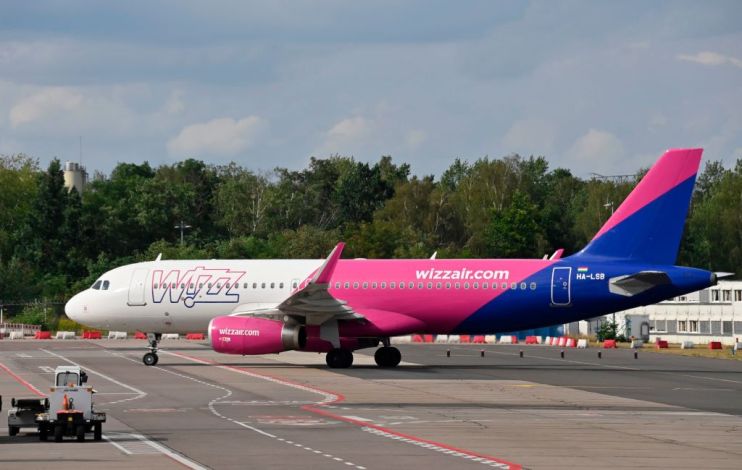Wizz Air posts wider losses as it battles fuel prices and disruption

Wizz Air has posted wider losses compared with the previous year as it continues battling record fuel prices and travel disruption.
Following the announcement, the company’s shares went down 7.79 per cent to 2,541p.
The low-cost carrier reported a FY22 full year loss of €643m, an 11.5 per cent rise on the €576m hit it took last year. The airline said it was also expecting a loss for the first quarter of FY23.
“We are operating in a much higher fuel price environment on the one hand and we are really forcing the ramp up,” chief executive Jozsef Varadi told analysts this morning.
Commenting on the results, Edison Group’s director of research Neil Shah said: “These results come at a tough moment for the low-cost airline industry.
“Wizz Air’s low prices and diversified operations will strengthen their offering, but the outlook remains difficult.”
The boss argued labour shortages were not Wizz Air’s issue but it was on airports and ground handling.
“We have been much engaged with recruiting staff, especially vital cabin crew, to make sure our organisational capacity gets aligned to the actual capacity we are deploying in the market place,” he said.
The airline was forced to axe a significant number of flights from Doncaster Sheffield Airport (DSA) from Friday after the airport could not guarantee a smooth run of operations.
Wizz accused the hub of not guaranteeing “the terms of its commercial agreement,” while DSA argued that the company had recognised its own labour shortages were behind the decision to suspend operations.
“Wizz Air is fully stocked on pilots as well as cabin crew for normal operating circumstances, the issue we are dealing with right no are the abnormalities of the operating environment, which require a totally different level of staff and a totally different level of management disruption,” Varadi added.
“According to Varadi, post-Brexit legislation have also contributed to labour shortages.
“The UK’s post-Brexit immigration policy is putting a lot of strain on the labour market, something that is unique to Britain across the industry,” he said.
“You have exemptions for agricultural workers, maybe there should be exemptions for aviation.”
Despite the losses, Wizz Air reported a166.3 per cent boost in passengers carried in FY22, with 27.1 million customers hopping aboard its planes over the 12 months period compared to just 10.2 million the year before.
Revenues spiked 125.1 125.1 per cent to €1.67bn – well up from last year’s figure of €739m – with the company ramping up its load factor from 64 to 78 per cent as pandemic conditions eased.
It also expanded its fleet from 135 to 153 planes, while overall seat count rose 15.5 per cent to 32,399.
Looking at the future, Varadi said the carrier was expecting a very strong summer as demand continues to soar.
“I said 30 per cent growth on capacity in the first quarter, with 40 per cent expected in the second one,” Varadi added. “Bookings are up versus 2019 levels.”